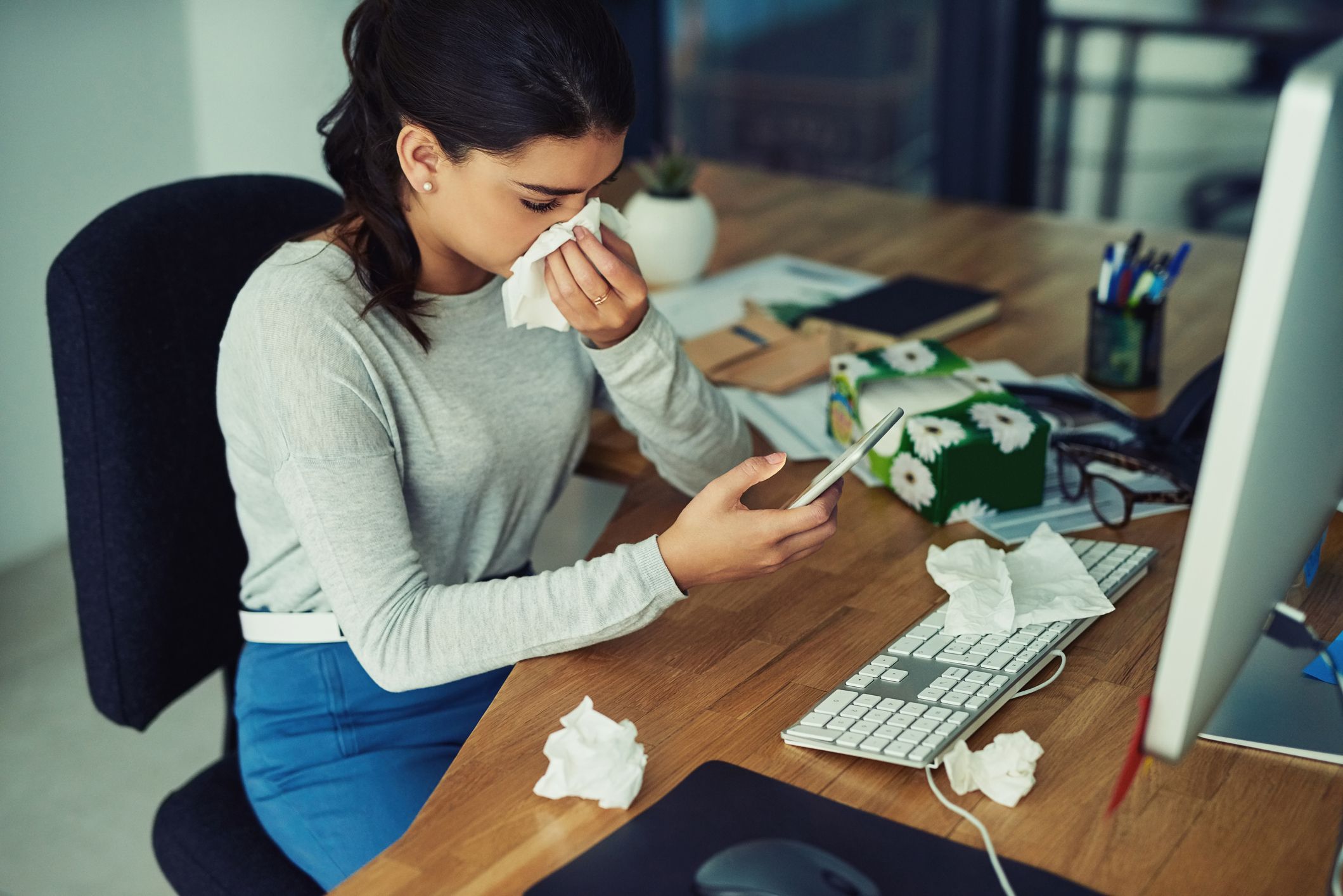While you're likely knee-deep in holiday preparations, last-minute shopping and the stress of greater-than-normal stress and crowds, here's another important thing to pay attention to.
This time of year may be all about spreading good cheer, but there's one thing you don't want to spread (or catch!)—and that's the flu.
This year, the flu season is off to an earlier start than last, according to the Centers for Disease Control and Prevention (CDC). And although it's recommended that nearly everyone age 6 months and older get vaccinated soon after the vaccine becomes available (preferably by October), it's not too late to get your vaccine.
Flu season is here to stay, until at least mid-spring. Each year, more than 200,000 people are hospitalized for complications related to the flu. The yearly flu season is responsible for up to 36,000 deaths in the United States every year.
But maybe you're of the school that you think you don't need (or want) a vaccine. Many people (erroneously) think they can get the flu from the vaccine itself. That's not true: The flu shot contains inactivated flu viruses that can't cause illness. If you opt for the nasal spray vaccine for you or your child, it's important to know that although the spray does contain live viruses, they are weakened and cannot cause the flu.
You may be thinking: "Why bother with a vaccine? I heard that this year's vaccine misses the mark."
Scientists must decide well in advance of flu season which strains of the influenza virus to protect against with the flu shot and the process is kind of hit or miss—an educated guessing game. This year's shot is not an exact "match" for the main virus strains that are circulating; it misses the mark on one specific strain but covers the other two.
"Early results showed that about half of the viruses found in patients this season were variants of the type targeted by the vaccine … this could increase the likelihood that even those who have been vaccinated will become ill," said Charlene Chick, MD, of the Rowan University School of Osteopathic Medicine, in a recent interview with Newswise. But the (kind of) good news is this: You're still protected against two common flu strains, and, if you get the mutated strain, you may experience milder symptoms.
Another important fact to know is that it takes about two weeks after your vaccine for your body to produce the antibodies necessary for protection. During this time, you're still at risk for getting the flu.
So, while you're busy with holiday merriment and joy, take these precautions:
- Wash your hands well. You'll likely be in close contact with lots of people in places with closed windows—a perfect breeding ground for germs. Wash up after blowing your nose, coughing or sneezing and, of course, before eating. Hum the "Happy Birthday" song from beginning to end—twice—while washing your hands.
- If soap and water are not available, use an alcohol-based hand sanitizer containing at least 60 percent alcohol. Apply it to the palm of one hand, rub your hands together and rub over all the surfaces of your hands and fingers until your hands are dry.
- Don't touch your face. Viruses on your hands can be easily spread if you touch your eyes, nose or mouth.
- Keep tissues close. Catch your sneezes and cover up your coughs with tissues, and toss them right after you use them. If a tissue isn't handy, turn and sneeze or cough into the inside of your elbow or even your shoulder.
- Call in sick. It may be tempting to tough it out, but you're not doing yourself or people around you any favors. You're contagious to others starting from one day before you even notice flu symptoms—and for up to five to seven after becoming sick.
- If you get the flu, there are prescription medications such as Tamiflu, Relenza and Xofluza that will decrease the time you have to deal with being sick. If you begin taking it within two days of your first symptoms, you'll decrease your sick time by about two days.
Read more like this:
Flu Shots Demystified
Flu/Colds Comprehensive Guide
The Surprising Way You Can Get the Flu


